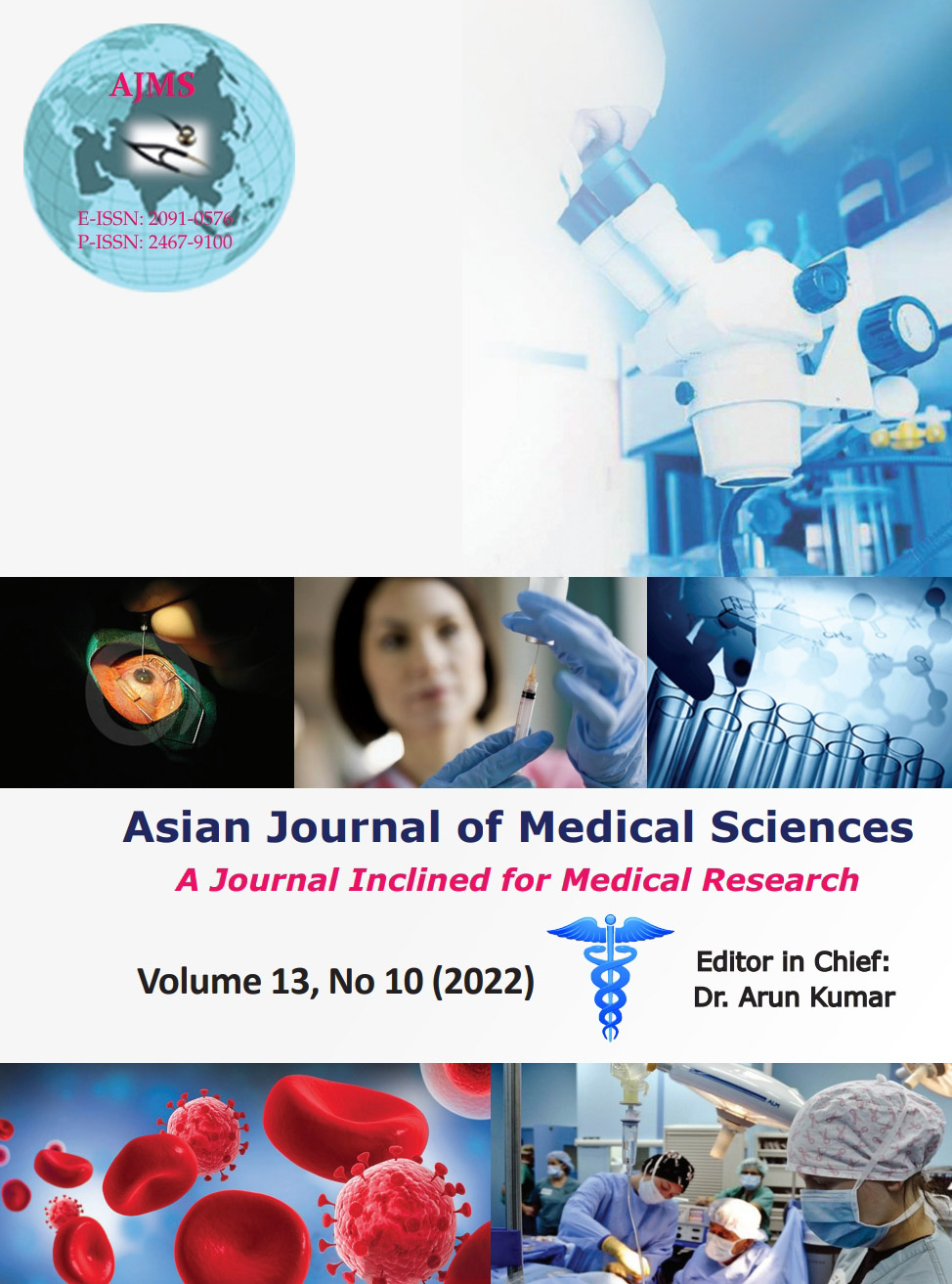Risk factors associated with prediabetes and cardiovascular disease: A perceptive study
Keywords:
Impaired fasting glucose; Prediabetes; Cardiovascular disease; Risk factorsAbstract
Background: Diabetes mellitus is emerging as a major health problem due to its serious complications. It is important to assess the various factors contributing to the occurrence of the diseases so that by limiting these factors the progression of the disease in patients can be controlled. Prediabetes is a state characterized by impaired fasting glucose or impaired glucose tolerance.
Aims and Objective: The present study was undertaken to determine the risk factors for Type 2 diabetes mellitus (T2DM) among adults, prediabetic subjects were identified from first degree relatives of T2DMpatients.
Materials and Methods: The present observational study was carried out at Department of Physiology, S.P. Medical College and Hospital in collaboration with diabetic research center P.B.M. hospital Bikaner (Rajasthan). Prediabetic subjects were identified from first degree relatives of T2DMpatients, enrolled in diabetic research center P.B.M. hospital Bikaner. Prediabetics (impaired fasting glucose) subjects were identified on the basis of fasting blood glucose 100–125 mg/dL and HbA1C (5.7–6.4%) as per American Diabetic Association (ADA) 2011 guidelines. Consecutive sampling was conducted till sample size satisfied during the period of study. Subjects of age group 20–74 years having FPG between 100 and 125 mg/dL, HbA1C between 5.7% and 6.4%, and gave informed written consent were included in study. Pre-structured performa was used to collect general information, sociodemographic information, baseline physical characteristics, personal habits, biochemical analysis, and for blood parameters.
Results: Age, occupation, body mass index (BMI), diet, smoking, alcohol, truncal obesity, and family history of DM were significantly associated with prevalence of T2DM/prediabetes whereas gender and literacy were not.
Conclusion: In the present study, it was observed that advanced age, occupational changes, BMI, substance abuse such as alcohol and smoking, truncal obesity, and family history of diabetes were highly associated risk factors for T2DM whereas literacy, gender, and central obesity showed no association with risk of T2DM.
Downloads
Downloads
Published
How to Cite
Issue
Section
License
Copyright (c) 2022 Asian Journal of Medical Sciences

This work is licensed under a Creative Commons Attribution-NonCommercial 4.0 International License.
Authors who publish with this journal agree to the following terms:
- The journal holds copyright and publishes the work under a Creative Commons CC-BY-NC license that permits use, distribution and reprduction in any medium, provided the original work is properly cited and is not used for commercial purposes. The journal should be recognised as the original publisher of this work.
- Authors are able to enter into separate, additional contractual arrangements for the non-exclusive distribution of the journal's published version of the work (e.g., post it to an institutional repository or publish it in a book), with an acknowledgement of its initial publication in this journal.
- Authors are permitted and encouraged to post their work online (e.g., in institutional repositories or on their website) prior to and during the submission process, as it can lead to productive exchanges, as well as earlier and greater citation of published work (See The Effect of Open Access).




